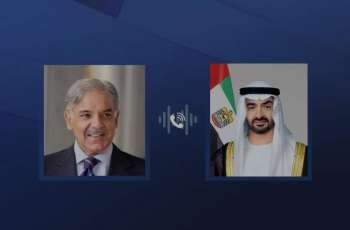WASHINGTON (Pakistan Point News / Sputnik - 20th August, 2019) President Donald Trump's threat to pull the United States out of the World Trade Organization (WTO) is not credible as Congress would probably block any effort to do so, analysts told Sputnik.
Trump said on August 13 that the United States may pull out of the WTO, following what he claimed were years of mistreatment at the hands of the organization.
However, trade and economic affairs analyst Alan Tonelson, American research fellow at the US business and Industry Council Educational Foundation, said Trump's threat was unlikely to be taken seriously.
"President Trump's threat isn't credible in the very short run, if only because under the WTO agreement itself, he's obligated to give the organization a six-month notice before the actual pull out," he said.
Trump would face an alliance of traditional free trade Republicans in his own party and the opposition Democrats who control the House of Representatives since the November 2018 midterm elections, Tonelson, founder of RealityChek blog which covers trade and economics, pointed out.
Over the longer term, US law requires Congress to vote every five years on staying in the WTO, and the next such occasion comes up next year, Tonelson observed.
"So far, continued American membership has proven extremely popular on Capitol Hill," he said.
However, Trump might be able to take advantage of the very different national political dynamics within the United States since WTO membership was last approved in 2015, Tonelson cautioned.
"Clearly the climate is different today from that during the previous vote, in 2015, and the President could unnerve the rest of the world even more than it already has by at least making it a campaign issue, and consequently by boosting the 'No' votes considerably, at least on the GOP side," he said.
Trump also enjoyed powers that could enable him to paralyze the workings of the WTIO without having to withdraw the United States officially from the organization, Tonelson commented.
"It's crucial to remember that the President's decision to block the appointment of certain WTO judges could bring the critical appellate level of the organization's dispute-resolution system to a halt by the end of this year. So unless he reneges, US withdrawal might not even be needed to evade the organization's rulings," he said.
Washington's withdrawal from the WTO, he added, would surely further disrupt a global economy that has already been shaken up "by the US trade policy reversal engineered by President Trump." Nevertheless, the US leader might be prepared to run that risk, Tonelson advised.
"Given how slowly cases make their way through the WTO process, it's difficult to believe that the disruption would be significant, since sluggish procedures mean that few businesses can afford to base their planning on expected WTO outcomes," he said. "Longer term, a neutered WTO could even prompt national governments to return to less formal, and probably quicker, ways to resolve their trade disputes."
Other WTO members might decide to keep the organization going if only as a gesture of anti-Trump defiance.
"But the centrality of the United States to the world trade system and broader economy mean that its US-less survival would be largely symbolic," he said.
Popular Resistance Co-Director Kevin Zeese agreed, however, that Trump was unlikely to overcome broad-based congressional opposition to withdrawing the United States from the WTO.
"Trump would need congressional approval to pull the US out of the WTO so it is unlikely," he said.
Unilateral US withdrawal from the WTO could also backfire on Trump and Washington by boosting China's global economic and trade standing, Zeese cautioned.
"The WTO was developed by the US, many of the rules were written by the US and the US dominates it. If the US were to leave, China would probably become the leader. It would cause confusion in lots of trade agreements because the WTO is an arbiter of trade disputes," he said.
Zeese also agreed with Tonelson that Trump's threats increased the dangers of a major international economic recession.
"It is bizarre to be threatening this at this time when the markets are already skittish and there are growing signs of recession. Disrupting the WTO would be one more thing to make investors insecure because of impacts [that] are hard to predict," he said.
Zeese also stressed that unilateral withdrawal from the WTO would be a self-defeating move for Washington.
"Why is Trump doing it? His is a mind I cannot read. So much of what he does makes little sense. Leaving the WTO would be one more step taken by Trump that would weaken the US as a global hegemony," he said.
Dollar dominance was a critical tool on US foreign policy that was now weakening, Zeese observed.
"If the US is no longer the reserve Currency and used in trade between nations, it will have unpredictable, but certainly negative consequences for the US economy," he concluded.



